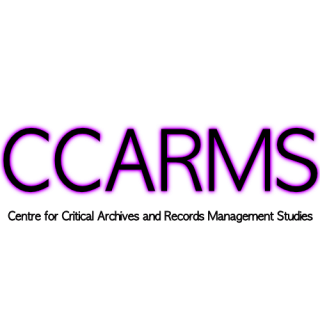MIRRA: Memory - Identity - Rights in Records - Access
Find us on Twitter: @mirraproject Project blog at: https//:blogs.ucl.ac.uk/mirra
New podcast in Made at UCL series, Series 3 Ep 1 Data Moves see https://www.ucl.ac.uk/made-at-ucl/podcasts/s3-ep1-data-moves
UCL research impact video and report: https://www.ucl.ac.uk/arts-humanities/innovation-and-enterprise/expertise-and-consultancy?collection=drupal-arts-and-humanities-case-studies&meta_UclOrgUnit=%22Faculty+of+Arts+%26+Humanities%22&meta_UclSubject=%22Expertise+and+consultancy%22&&le_DateFilter=20220504 and https://www.ucl.ac.uk/impact/case-studies/2022/apr/transforming-access-childrens-social-care-records-england
Press release/ UCL news item: https://www.ucl.ac.uk/news/2019/oct/childrens-voices-omitted-care-records-ucl-study-finds
Article in Community Care: https://www.communitycare.co.uk/2019/10/03/childrens-voices-largely-absent-care-records-causing-significant-distress-study-finds/
Article in The Conversation: https://theconversation.com/care-leavers-trying-to-access-childhood-records-is-distressing-and-dehumanising-124381
'Navigating the public information rights ecology: a recordkeeping perspective' is a two year participatory action project, funded by the Arts and Humanities Research Council until late 2019. It brings together care leavers and researchers to explore social care recordkeeping in England from 1970 to the present, focusing particularly on issues relating to access. Through interviews and workshops we are collecting qualitative data from four participant groups:
• a wider group of care leavers;
• social care practitioners, who create records;
• information professionals, who manage and often provide access to records;
• and academic researchers who use social care records in their work.
By taking a holistic view from multiple perspectives, and by considering recordkeeping from the point of creation through to access and disposal, MIRRA seeks to generate nuanced accounts of information rights and information responsibilities in social care records.
Records and archives, as touchstones of memory, give organisations, communities, families and individuals access to their shared history and values. In family settings, written records and photographs document significant events (births, marriages, deaths), celebratory occasions (birthdays, holidays, anniversaries) and milestones (first day at school, passing an examination, getting a job). Family and personal records are increasingly created and held in digital forms: methods are emerging to assist personal digital recordkeeping. This research will consider how we can better understand the information rights ecology in the public and voluntary sectors in order to support individuals and public authorities in navigating it, for both the public good and for individual information rights. Our data collection will gather qualitative data from data subjects; welfare professionals; information professionals; and users of research data in order to understand all four perspectives on the research questions. Many records about the life of individuals are created and held outside the family unit by organisations and agencies with whom the individual interacts. In the children's services and care field this includes local authorities (eg day centres, childcare, education), NHS hospital trusts and GPs (health care), charities and third sector bodies (eg mental health care, social care), national policy and data bodies such as NHS England and Health and Social Care Information Centre (HSCIC) and other agencies. In such a mixed economy of service delivery it is often unclear who is responsible for documenting the services individuals receive, recordkeeping systems are generally incompatible with those of other organisations, and no shared recordkeeping protocols exist. Attempts to share data between agencies for the public good (such as <care.data> which proposed to link hospital episode data and GP data) have failed to building a social contract of trust about access to data sharing and information rights, privacy and the nature of consent and opt-out. Poor recordkeeping has had a negative impact on the running of public services and on the ability of inquiries into historic abuses to investigate fully (such as The Independent Inquiry into Child Sexual Abuse (IICSA). The research will achieve better understanding of the landscape and enable sharing of good practice and improved recordkeeping in future for citizens, professionals and researchers.
The impact of poor recordkeeping on individual lives comes sharply into focus in the specific case of children in care and those who leave care, who usually lack a family setting and family memories. A 2016 report on Care Leavers and Access to Social Care Files warns that care leavers seeking access to their own files face an information rights 'lottery'. Care leavers often have no family memories or records and yet the institutional records created about their lives frequently neglect the individual's needs, treating them as 'data subjects' and refusing to provide information about 'third parties' such as siblings or parents. As part of this research project we will co-create a recordkeeping protocol with the Care Leavers' Association in order to assist the implementation of the 2016 report recommendations.
Research Objectives
The information rights ecology in the public and voluntary sectors is increasingly complex, multi-faceted and shifting. A better understanding of the complexities of the current landscape is needed in order to ensure that citizens are able to exercise their information access rights and assure their data privacy. The central research question is: how can we better understand the information rights ecology in the public and voluntary sectors in order to support individuals and public authorities in navigating it?
Four areas will be investigated to establish a recordkeeping perspective on supporting information rights:
1. Investigating how recordkeeping in practice enables information access and data privacy rights, within the legal framework in England
2. Studying how information access protocols, such as open government data, support citizen's information rights.
3. Investigating how effective these access mechanisms are in delivering information rights to citizens and what benchmarks and frameworks exist which help to measure effectiveness.
4. Evaluating what role recordkeepers and other information professionals play and what value they add to enabling information rights in public authorities and the voluntary sector.
We will do this by seeking the perspectives of four communities most closely concerned with these issues, using mixed methods including literature review, participatory engagement and interviewing:
1. Data subjects in health and social care (ie private citizens, with a focus on care leavers)
2. Health and social care professionals (ie with primary responsibility for the creation and day to day management of records and data)
3. Recordkeepers, information professionals, information access officers (ie providers of a wide range of information access, information rights policy and protection of data privacy services)
4. Academic researchers using health & social care data eg health economists, social scientists researching health and educational outcomes (ie experienced, specialised information users)
 Close
Close


